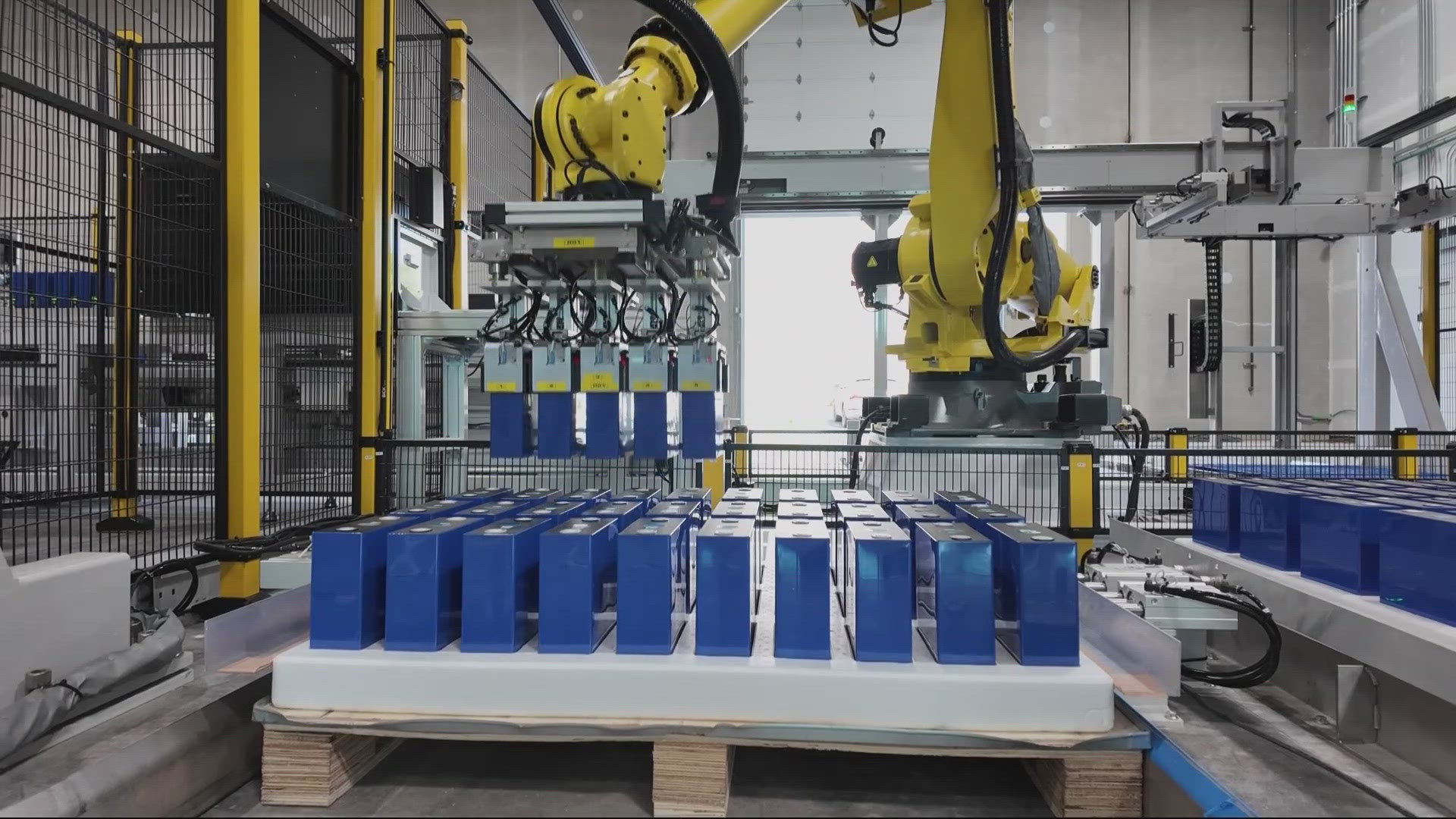PORTLAND, Oregon — Oregon has one of the greenest power grids in the United States, but solar and wind energy production are weather-dependent and don't always line up with the periods of highest demand, so the abundance of clean energy tends to create a strong consumer appetite for new energy storage technologies to smooth things out.
Tualatin-based Meter is tapping into that need, aiming to hire 500 people for the manufacture and maintenance of backpack-sized batteries that can power homes and businesses. Pending UL approval, Meter expects to ramp up production this fall.
"We worked for about 3 years and now it's finally open," said founder Joseph Lu. As the CEO of QPO Energy, Lu has already lead one local energy storage business to prominence, Powin. Now, he sees great promise in getting Meter's type of system into homes and businesses.
And the impact on our local economy could be significant. "We've already got more people in the clean energy sector here than Seattle, Salt Lake City, L.A, and Houston," says Neil Simon, spokesperson for Greater Portland Inc, an economic development agency which works to bring companies to the region.
Citing company research, Simon added "The sector’s 40,000 local jobs ranks the Portland clean energy workforce 7th in the nation."
Meter's energy storage packs are made up of 18 individual battery cells linked to form 15 kilowatt batteries — perfect for shaving down a household's peak energy demand, or serving as backup power for a home or office. Most importantly, they can run independent of the availability of solar power.
That's a huge boost for states like California, which has deployed so much solar generating capacity that some of the energy ends up going to waste during peak sunlight hours, when demand can't keep up with supply and there isn't enough storage available to save all the excess for later.
An NBC report back in July revealed that the state is now routinely producing more renewable energy than it can use at certain times of day, forcing it to essentially throw out an estimated 2.6 million megawatt-hours of renewable energy — most of it solar — which is more than enough to power all the homes in San Francisco for a year.
Lu said he sees Meter's battery energy system, and others like it, as a great way to solve that obvious problem, and he said he'd like to see more states move toward incentivizing storage capacity in addition to raw solar generating capacity.
Meter's current battery cell units are imported from China, but Lu said the hope is that continued investment and incentivization can bring the entire supply chain for energy storage to the United States. Lu cited the federal Infrastructure Investment and Jobs Act as a primary reason for opening the new facility in Tualatin.
Simon added "every incentive matters to a business, but a one time gift is only a one time gift. We need sustained investment in these sectors, if we're going to have sustained growth in our economies."

